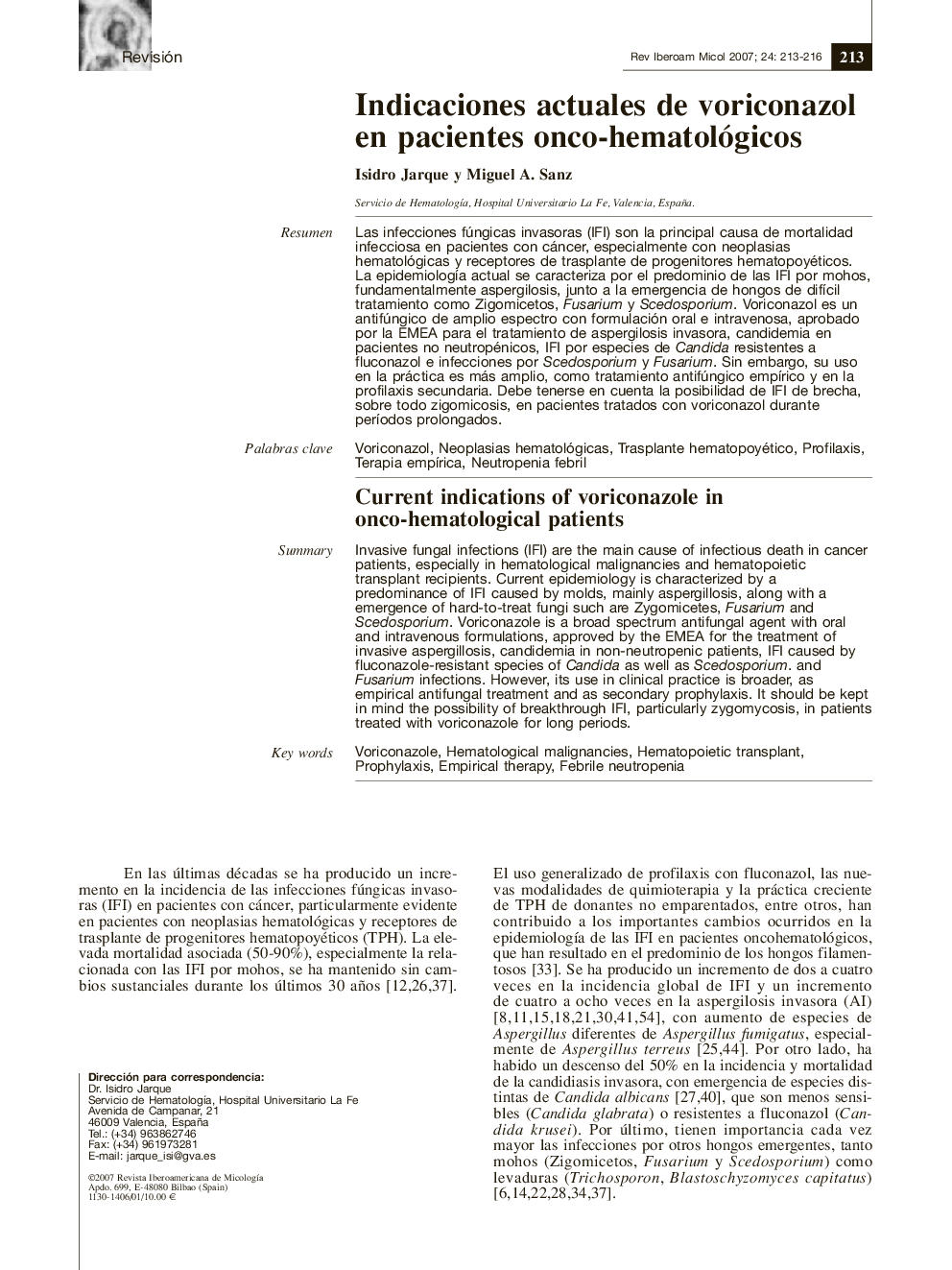| Article ID | Journal | Published Year | Pages | File Type |
|---|---|---|---|---|
| 3419177 | Revista Iberoamericana de Micología | 2007 | 4 Pages |
Abstract
Invasive fungal infections (IFI) are the main cause of infectious death in cancer patients, especially in hematological malignancies and hematopoietic transplant recipients. Current epidemiology is characterized by a predominance of IFI caused by molds, mainly aspergillosis, along with a emergence of hard-to-treat fungi such are Zygomicetes, Fusarium and Scedosporium. Voriconazole is a broad spectrum antifungal agent with oral and intravenous formulations, approved by the EMEA for the treatment of invasive aspergillosis, candidemia in non-neutropenic patients, IFI caused by fluconazole-resistant species of Candida as well as Scedosporium. and Fusarium infections. However, its use in clinical practice is broader, as empirical antifungal treatment and as secondary prophylaxis. It should be kept in mind the possibility of breakthrough IFI, particularly zygomycosis, in patients treated with voriconazole for long periods.
Keywords
Related Topics
Life Sciences
Immunology and Microbiology
Microbiology
Authors
Isidro Jarque, Miguel A. Sanz,
